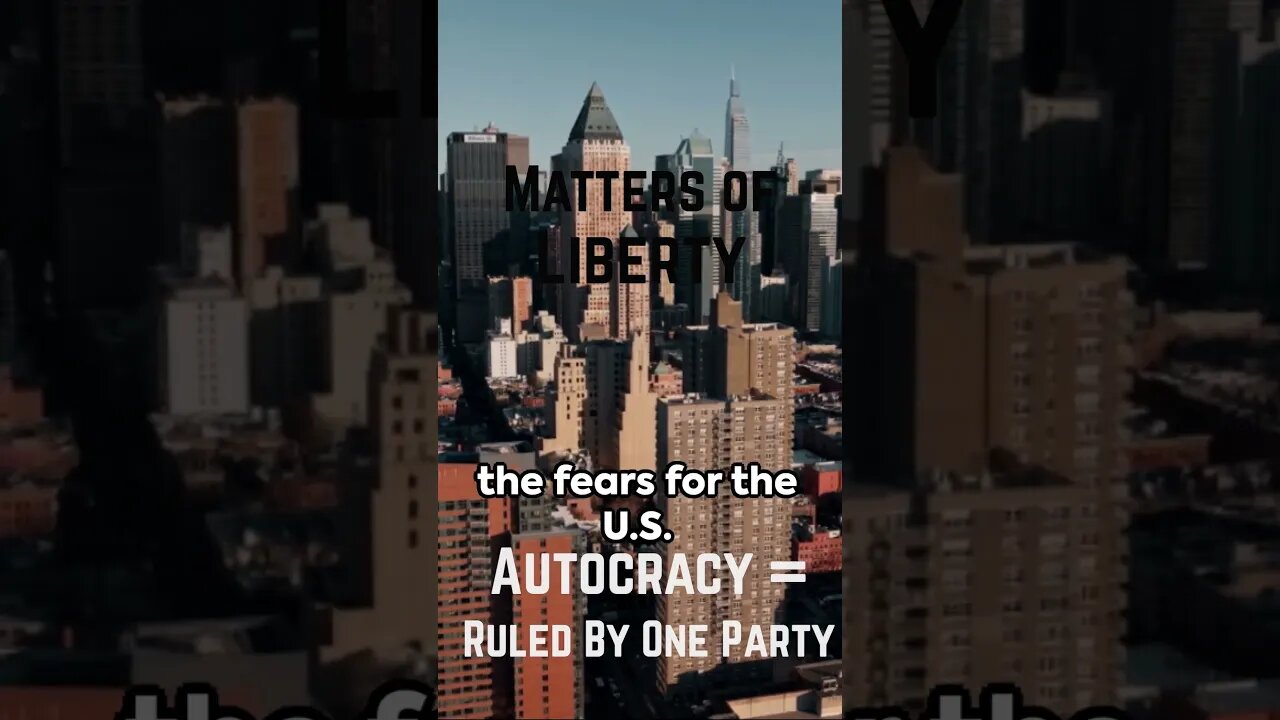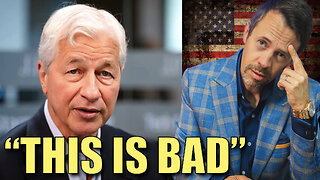Premium Only Content

Warning! Empires in Decline, Learn from U S and Rome Parallel / Garrison Grip's Matters of Liberty
Mattes of Liberty Podcast Brings You "The Decline of Great Civilizations Parallel".
The decline of great civilizations, such as the Roman Empire and potential lessons for the United States, has been a subject of considerable debate among historians, political scientists, and commentators. Drawing parallels between the two can be instructive, although it's important to keep in mind that the contexts are different and not every comparison will be directly applicable. Here are some points of parallel and lessons that could be drawn:
Overextension: The Roman Empire expanded its borders considerably, and over time, the costs of maintaining and defending such a vast territory became untenable. The United States, although not an empire in the traditional sense, has had a significant military and political presence worldwide. The strain of maintaining global commitments can be a significant burden.
Economic Strains: The Roman economy faced hyperinflation, especially during the Crisis of the Third Century. The debasement of the currency and over-reliance on slave labor were contributing factors. Similarly, the U.S. faces challenges like national debt, trade imbalances, and potential economic inequality.
Political Instability: Rome saw a series of short-lived emperors, coups, and civil wars during its decline. While the U.S. political system has shown resilience, increasing polarization and distrust in institutions are challenges.
External Threats: Rome faced invasions from various "barbarian" groups. The U.S. faces both traditional security threats and non-traditional threats like cyber-attacks.
Social and Cultural Changes: As Rome grew, it incorporated a vast range of cultures, leading to challenges in maintaining a unified identity and shared values. The U.S. is also a melting pot, and debates about identity, immigration, and cultural assimilation have been significant.
Infrastructure Neglect: The Roman Empire had impressive infrastructure, including roads, aqueducts, and public buildings. Over time, maintenance was neglected. In the U.S., there's been ongoing concern about aging infrastructure and the need for modernization.
Moral and Ethical Decay: Some argue that Rome's decline was precipitated by a moral decay, with increasing decadence and loss of civic virtue. Similar concerns have been voiced about modern societies, including the U.S., where perceived moral and ethical standards may be shifting or eroding.
Dependency on Outsourcing and Mercenaries: Rome became increasingly reliant on mercenaries to defend its borders. This could be paralleled with the U.S.'s reliance on outsourcing certain critical industries and services.
Failure to Adapt to New Realities: Societies that cannot adapt to changing circumstances, whether economic, environmental, or military, are more vulnerable. Both Rome and the U.S. faced challenges that required adaptation and flexibility.
Key Takeaways:
It's important not to oversimplify or draw too direct a line between Rome and the U.S. What worked or didn't work for one might not be the same for the other.
The challenges faced by great powers are multi-faceted. It's rarely just one thing that leads to decline.
Being proactive in addressing both internal and external challenges can go a long way in sustaining the longevity and health of a nation.
While history does not always repeat itself, it often rhymes. By studying the experiences of past empires, modern nations can potentially spot patterns and challenges early and take action to address them.
This is a "Matters of Liberty" Podcast brought to you by https://garrisongrip.com. We specialize in the design and manufacture of safety, CCW, and tools that make the shooting sport safer, more accurate, and more comfortable. All of our more than 500 SKUs are exclusive and we only sell direct to the public. Click this link and check us out at garrisongrip.com today.
Regenerate
-
 LIVE
LIVE
LFA TV
11 hours agoLIVE & BREAKING NEWS! | TUESDAY 10/14/25
2,406 watching -
 LIVE
LIVE
The Chris Salcedo Show
11 hours agoAfter What They've Done, Mockery Is The Best They Deserve
535 watching -
 2:57:12
2:57:12
TimcastIRL
12 hours agoDems SHUTDOWN Government For NO KINGS Insurrection, Block Police Pay | Timcast IRL
474K151 -
 12:35
12:35
Adam Something
4 days agoTesla Cybertruck: A Tragedy On Four Wheels
1.04K6 -
 8:22
8:22
Silver Dragons
18 hours agoAre Silver Rounds Really the BEST SILVER to Stack Right Now?
3.16K8 -
 19:52
19:52
Neil McCoy-Ward
19 hours ago🚨 The Global Financial Collapse May Have Already Started 🔥
2.33K3 -
 LIVE
LIVE
BEK TV
23 hours agoTrent Loos in the Morning - 10/14/2025
89 watching -
 10:12
10:12
Ken LaCorte: Elephants in Rooms
17 hours ago $0.39 earnedIt's not just about intelligence
2.06K2 -
 1:43
1:43
NAG Daily
14 hours agoNEWS HEADLINES FOR DUMMIES W/GREENMAN REPORTS
2.91K -
 26:48
26:48
Anthony Rogers
14 hours agoCandlebox Interview — Daytona Speedway
2.29K1